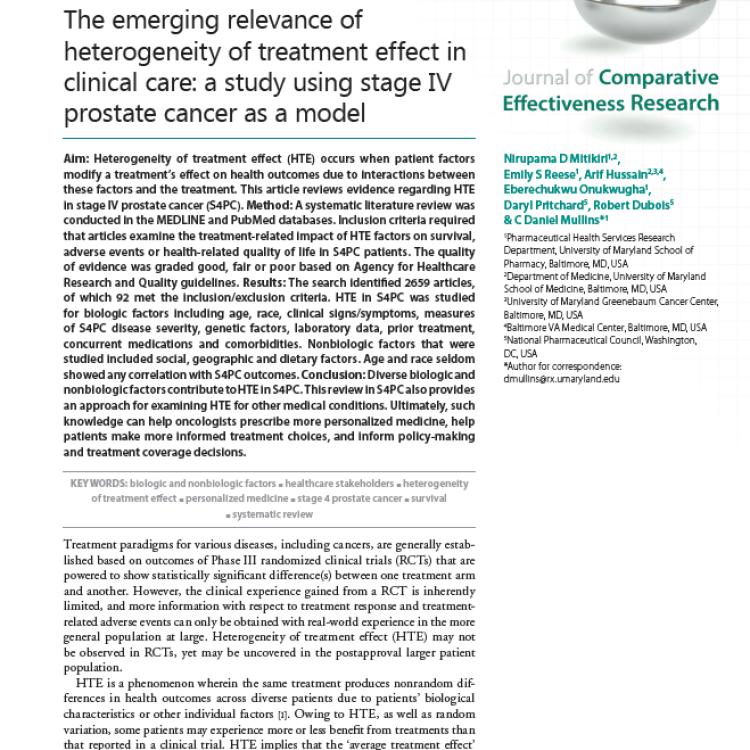Despite the widely accepted fact that a patient’s biologic (e.g., age, race, genetic factors) and nonbiologic factors (e.g., social behaviors, dietary habits, geography) affect his or her health outcome, how these diverse factors correlate with a treatment’s results is not well understood or studied. To further investigate how individual patient differences are taken into account when treating diseases, NPC Chief Science Officer Dr. Robert Dubois and Director of Policy Research Dr. Daryl Pritchard partnered with the University of Maryland School of Pharmacy to conduct a systematic literature review, which was recently published in the Journal of Comparative Effectiveness Research. The article, “The Emerging Relevance of Heterogeneity of Treatment Effect in Clinical Care: A Study Using Stage IV Prostate Cancer as a Model,” examines how both biologic and nonbiologic factors affected the overall survival of patient’s with stage IV prostate cancer. The authors found that, “Ultimately, such knowledge [examining biologic/nonbiologic factors during treatment] can help oncologists prescribe more personalized medicine, help patients make more informed treatment choices, and inform policy-making and treatment coverage decisions.”
The article also underscores why it’s important to understand and recognize the impact of individual patient differences on treatment outcomes:
- So that medical protocols don't focus solely on "average" treatment effects, denying the most effective care to patients who don't fit that average profile.
- So that evidence-based medicine is practiced as efficiently and effectively as possible.
- In order to achieve patient-centered care that delivers improved health outcomes and a greater degree of patient safety.
